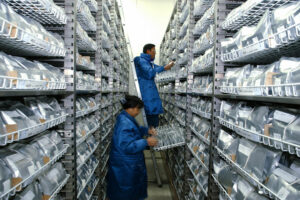THE Department of Agriculture (DA) said it hopes to achieve at least 90% self-sufficiency in seed across all crops by 2028 to insulate farming from supply-chain shocks.
Agriculture Undersecretary Roger V. Navarro said the DA is strengthening plant breeding and seed production programs with a focus on critical crops such as corn, onion, and garlic, with the aim of making seed affordable for farmers in disadvantaged areas.
Every province has been set a goal of 90% self-sufficiency in seed for all crops produced in the area, he said at a Bureau of Plant and Industry (BPI) event.
Seed self-sufficiency has the potential to lower production and shipping costs, according to Mr. Navarro.
He touted domestically produced seed as well-adapted to local conditions.
Timely access to seed also ensures optimal planting for farmers.
Philippine Seed Industry Association Vice-President Julius Barcelona said the private sector, which includes private growers and breeders, remains the main driver of seed innovation, with most seed companies “plowing back” 30%-40% of what they make into developing new seed varieties.
He also noted that domestic seed companies are active in extension and capacity-building programs for smallholder farmers.
Mr. Barcelona noted, however, that seed companies remain reluctant to invest in varieties that are not profitable or in low demand.
In the Asia-Pacific, the demand for seed is in vegetables and rice. Legumes are generally “underrepresented” in companies’ portfolios across the region.
He said many seed companies limit their activities to sales and are not engaged in extension services.
Mr. Navarro said the DA is putting up cold storage facilities not just for harvest crops but also for seed.
It is planning to put up a central gene bank and regional gene banks that will be managed by the BPI, he added.
He said the government also wants state universities and colleges to boost course offerings around plant breeding, plant varietal improvement, and seed health. — Kyle Aristophere T. Atienza

